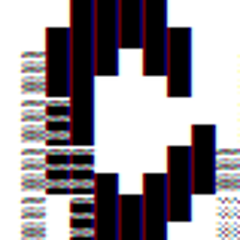Unit Testing
Last Version: 4.3.2
Release Date:junit-docker-postgres
com.intapp : junit-docker-postrgresUtility tool to run Postgres container to help you writing isolated test with JUnit
Last Version: 1.0
Release Date:Last Version: 1.1
Release Date:Embedded JMS JUnit5 Jupiter Extension
org.zapodot : embedded-jms-junit5Library that provides JUnit extensions setting up an embedded JMS broker (ActiveMQ) for testing. For JUnit 4 it provides a @Rule, while for JUnit 5 Jupiter it provides an extension that may be enabled by either the @ExtendWith or @RegisterExtension annotations provided by Jupiter
Last Version: 0.2
Release Date:JUnit Test Groups
com.github.ferstl : junit-testgroupsDivides your JUnit tests into groups which can be executed separately or all at once
Last Version: 1.0.1
Release Date:ZeroMock-zeromock-junit4
com.github.tonivade : zeromock-junit4Mock Http Server (mostly) without dependencies
Last Version: 0.16.0
Release Date:Quarkus - JUnit 5 - Mockk Parent
io.quarkiverse.mockk : quarkus-junit5-mockk-parentParent POM for Quarkiverse projects that includes the default release and artifact publishing related configuration
Last Version: 1.1.1
Release Date:CDI-Unit-JUnit-Extension
com.github.cschabl.cdi-unit-junit5 : cdi-unit-junit5JUnit 5 extension for running CDI-Unit tests
Last Version: 0.4
Release Date:powermock-module-test-mockito-junit4-agent
org.powermock : powermock-module-test-mockito-junit4-agentTests for PowerMock Java agent with JUnit4 and Mockito
Last Version: 1.6.6
Release Date:rapidpm-junit5-ext-servlet-container-impl
org.rapidpm : rapidpm-junit5-ext-servlet-container-impljUnit5 Extension to start/stop Servlet Container for a test
Last Version: 01.00.04-RPM
Release Date:Last Version: 83
Release Date:tljunit sample project for running tests from eclipse.
net.oneandone.testlinkjunit : tljunit-eclipseDocuments how to create a Testlink-XML file when running tests from Eclipse, see EclipseTest.java.
Last Version: 3.0.2
Release Date:Knot.x - Reactive microservice assembler - JUnit Tests Knot.x helpers
io.knotx : knotx-junitKnot.x - efficient, high-performance and scalable integration platform for modern websites
Last Version: 1.2.2
Release Date:Last Version: 1.0.0-M8
Release Date:SoapUI JUnit MockRunner
io.fares.junit.soapui : soapui-junit-mockrunnerThis JUnit extension will bootstrap SoapUI Mock in its own classloader context to prevent clashes with any project dependencies that are under test. The mockrunner uses Plexus Classworlds/Container and Aether to decouple the execution of the mock from the projects under test.
Last Version: 0.0.3
Release Date:openutils test utils (junit) for dwr
net.sourceforge.openutils : openutils-testing-junit-dwropenutils test utils for dwr
Last Version: 1.1
Release Date:Junit4OSGi Maven Plugin
org.apache.felix : maven-junit4osgi-pluginApache Felix is an OSGi implementation.
Last Version: 1.0.0
Release Date:Arquillian TestRunner JUnit Aggregator
org.jboss.arquillian.junit : arquillian-junit-parentArquillian JUnit Aggregator
Last Version: 1.7.0.Alpha10
Release Date:Last Version: 7.1.1
Release Date:Last Version: 0.4.4
Release Date:pact-jvm-consumer-junit5_2.11
au.com.dius : pact-jvm-consumer-junit5_2.11pact-jvm-consumer-junit5 ======================== JUnit 5 support for Pact consumer tests ## Dependency The library is available on maven central using: * group-id = `au.com.dius` * artifact-id = `pact-jvm-consumer-junit5_2.12` * version-id = `3.5.x` ## Usage ### 1. Add the Pact consumer test extension to the test class. To write Pact consumer tests with JUnit 5, you need to add `@ExtendWith(PactConsumerTestExt)` to your test class. This replaces the `PactRunner` used for JUnit 4 tests. The rest of the test follows a similar pattern as for JUnit 4 tests. ```java @ExtendWith(PactConsumerTestExt.class) class ExampleJavaConsumerPactTest { ``` ### 2. create a method annotated with `@Pact` that returns the interactions for the test For each test (as with JUnit 4), you need to define a method annotated with the `@Pact` annotation that returns the interactions for the test. ```java @Pact(provider="test_provider", consumer="test_consumer") public RequestResponsePact createPact(PactDslWithProvider builder) { return builder .given("test state") .uponReceiving("ExampleJavaConsumerPactTest test interaction") .path("/") .method("GET") .willRespondWith() .status(200) .body("{\"responsetest\": true}") .toPact(); } ``` ### 3. Link the mock server with the interactions for the test with `@PactTestFor` Then the final step is to use the `@PactTestFor` annotation to tell the Pact extension how to setup the Pact test. You can either put this annotation on the test class, or on the test method. For examples see [ArticlesTest](src/test/java/au/com/dius/pact/consumer/junit5/ArticlesTest.java) and [MultiTest](src/test/groovy/au/com/dius/pact/consumer/junit5/MultiTest.groovy). The `@PactTestFor` annotation allows you to control the mock server in the same way as the JUnit 4 `PactProviderRule`. It allows you to set the hostname to bind to (default is `localhost`) and the port (default is to use a random port). You can also set the Pact specification version to use (default is V3). ```java @ExtendWith(PactConsumerTestExt.class) @PactTestFor(providerName = "ArticlesProvider", port = "1234") public class ExampleJavaConsumerPactTest { ``` **NOTE on the hostname**: The mock server runs in the same JVM as the test, so the only valid values for hostname are: | hostname | result | | -------- | ------ | | `localhost` | binds to the address that localhost points to (normally the loopback adapter) | | `127.0.0.1` or `::1` | binds to the loopback adapter | | host name | binds to the default interface that the host machines DNS name resolves to | | `0.0.0.0` or `::` | binds to the all interfaces on the host machine | #### Matching the interactions by provider name If you set the `providerName` on the `@PactTestFor` annotation, then the first method with a `@Pact` annotation with the same provider name will be used. See [ArticlesTest](src/test/java/au/com/dius/pact/consumer/junit5/ArticlesTest.java) for an example. #### Matching the interactions by method name If you set the `pactMethod` on the `@PactTestFor` annotation, then the method with the provided name will be used (it still needs a `@Pact` annotation). See [MultiTest](src/test/groovy/au/com/dius/pact/consumer/junit5/MultiTest.groovy) for an example. ### Injecting the mock server into the test You can get the mock server injected into the test method by adding a `MockServer` parameter to the test method. ```java @Test void test(MockServer mockServer) { HttpResponse httpResponse = Request.Get(mockServer.getUrl() + "/articles.json").execute().returnResponse(); assertThat(httpResponse.getStatusLine().getStatusCode(), is(equalTo(200))); } ``` This helps with getting the base URL of the mock server, especially when a random port is used. ## Unsupported The current implementation does not support tests with multiple providers. This will be added in a later release.
Last Version: 3.5.24
Release Date:in memory infrastructure
com.github.signed.inmemory.sftp : sftp-server-junitA collection of easy to use in memory servers for testing.
Last Version: 0.1.0
Release Date:Last Version: 0.0.8
Release Date:Graphene Selenium: Functional Test for JUnit Standalone
org.jboss.arquillian.graphene : graphene-selenium-ftest-junit-standaloneTesting Ajax with flavour of sexy type-safe API
Last Version: 2.0.0.Alpha5
Release Date:Last Version: 1.0.0-RC21-2
Release Date:AP4K :: Starters :: Kubernetes :: Junit
io.ap4k : kubernetes-junit-starterA collection of annotations and processors for Kubernetes
Last Version: 0.5.0
Release Date:Last Version: 0.1
Release Date:JUnitFactory
org.jmmo : junit-factoryIt is allow to create JUnit tests dynamically how the annotation @Factory in TestNG does
Last Version: 1.1
Release Date:fixture-monkey
com.navercorp.fixturemonkey.snapshot : fixture-monkey-junit-jupiterThe easiest way to generate controllable arbitrary test objects
Last Version: 0.4.0-862c628
Release Date:Example JUnit4 gRPC System Test
org.testifyproject.examples : example-junit-grpc-systemtestCreates a new quickstart project to system test a gRPC application with Testify, JUnit4, Mockito, and AssertJ.
Last Version: 1.0.0
Release Date:uk.co.markg.archetypes:java11-junit5
uk.co.markg.archetypes : java11-junit5An archetype for generate java 11 projects with junit 5.
Last Version: 1.0
Release Date:Last Version: 1.0.0-M8
Release Date:co.helmethair:scalatest-junit-runner
co.helmethair : scalatest-junit-runnerJUnit 5 Scalatest runner
Last Version: 0.1.11
Release Date:Last Version: 1.0.4-2
Release Date:Last Version: 1.2.4
Release Date:angles-junit5
com.github.angleshq : angles-junit5This is the java client for the Angles test results dashboard and contains all the necessary methods to store your test results in the Angles dashboard.
Last Version: 1.0.36
Release Date:Constretto :: Test (junit 4.5) - 2.0.4
org.constretto : constretto-test-junit-4.5This project aims to help java application developers to manage their configuration issues.
Last Version: 2.0.4
Release Date:Last Version: 0.6.13
Release Date:Testing utilities: Postgres Junit 5 Framework
com.torodb.testing : postgres-junit-5This is a aggregation and parent pom used by ToroDB testing utility projects.
Last Version: 1.0.0
Release Date:Last Version: 0.4.4
Release Date:powermock-module-test-easymock-junit4-agent
org.powermock : powermock-module-test-easymock-junit4-agentTests for PowerMock Java agent with JUnit4 and Easymock
Last Version: 1.6.6
Release Date:Petals ESB - Components - SE Flowable - JUnit framework
org.ow2.petals : petals-se-flowable-junitJUnit framework for service unit of the BPMN Service Engine based on Flowable
Last Version: 1.3.0
Release Date:maven-surefire-junit5-tree-reporter
me.fabriciorby : maven-surefire-junit5-tree-reporterTree view reports for Maven Surefire JUnit5 plugin. :^)
Last Version: 1.0.0
Release Date:Ferris JUnit
org.ferris : ferris-junitFerris JUnit contains Mocks, Shunts, and other code useful in unit testing. 0.0.1 Transfer from Oak to Ferris
Last Version: 0.0.1
Release Date:Testing utilities: MongoDB Junit 5 Framework
com.torodb.testing : mongodb-junit-5This is a aggregation and parent pom used by ToroDB testing utility projects.
Last Version: 1.0.0
Release Date:Last Version: 0.1.6
Release Date:Last Version: 3.2.6.0
Release Date:agent-allure-junit5
com.epam.reportportal : agent-allure-junit5Report Portal - Allure integrations for JUnit 5
Last Version: 5.1.0-BETA-3
Release Date:Last Version: 0.8.0
Release Date:Petals ESB - Components - SE Mapping - JUnit framework
org.ow2.petals : petals-se-mapping-junitJBI Components for Petals ESB
Last Version: 1.1.0
Release Date:
















